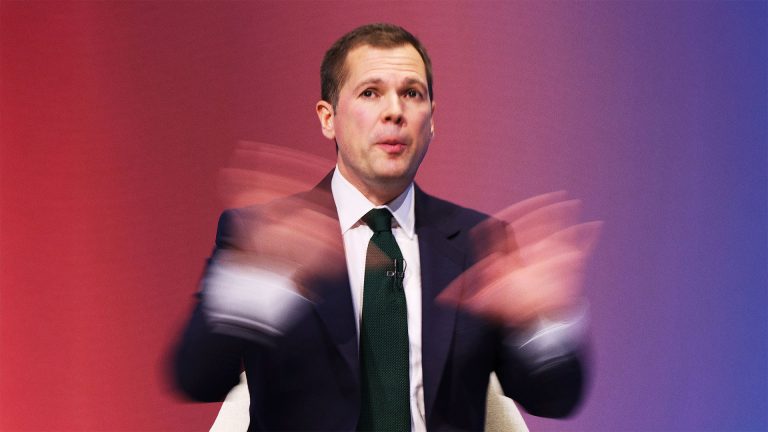The new Labour government didn’t get off to the best of starts with Britain’s tech entrepreneurs. Chancellor Rachel Reeves had hinted at massive hikes in capital gains taxes and the tax on the entrepreneurs’ relief scheme, which caused great wailing and gnashing of teeth on LinkedIn.
Startup Coalition, the British tech lobby group warned that the government’s tax plans could result in a tech “brain drain.” When the modest increases were announced, one tech founder who had threatened to move to the US commented that it was “better than I thought it would be.”
Labour next appeared to score an unnecessary own goal after canceling the UK’s £1.3bn plan for AI and tech investment, which included an £800 million supercomputer at Edinburgh University. A £100m commitment by the science and tech minister Peter Kyle to establish five quantum technology hubs in Glasgow, London, Edinburgh, Birmingham and Oxford seemed a sop by comparison.
But then, as the late anthropologist and activist David Graeber once said: “The ultimate hidden truth of the world is that it is something we make. And could just as easily make differently.” And what is being made by the UK’s technology startups and “scaleups” right now hints at a brighter future than might be immediately apparent from the government’s weak show of interest.
Although Silicon Valley has, justifiably, been seen as a factory for the world’s “unicorns” (companies worth over $1bn), the UK and EU are now churning out a few “thoroughbreds”: tech startups with annual revenues of at least $100m and valuations in the hundreds of millions.
The UK’s tech sector employs over 1.7 million people and contributes £99bn to the economy each year, with an average annual growth rate of 10%. Julian David, CEO of techUK, called it “one of the country’s biggest success stories. Its influence extends far beyond the industry itself”.
That extension spreads out in a circle with a radius roughly equivalent to a five-hour train ride from London, covering an area that the venture capitalist Saul Klein has called “the New Palo Alto”. The cities of Glasgow, Manchester, Cambridge, Edinburgh, London, Oxford, Brussels, Paris, Eindhoven, and Amsterdam are all pumping out these $100m startups. And it’s only 45 minutes by plane to Dublin.
Few of the big tech companies that started up in those cities would exist without London’s venture capital heft. It’s not for nothing that the founders of Skype started the venture capital firm Atomico here, joining Index Ventures, Balderton Capital, Hoxton Ventures, and Plural, to name but a few.
And the UK has attracted US VCs such as General Catalyst, Sequoia, and others who have also put down roots in the capital in the last few years, hunting cheaper deals than they can find in overheated San Francisco, where renting a room in a shared house can now cost $5,000 a month.
The UK itself has produced a blistering array of successful companies, such as Raspberry Pi (invented and developed in Cambridge, manufactured in Pencoed, South Wales) which floated this year on the London Stock Exchange. The UK’s most valuable technology company is Arm, from Cambridge which designs most of the chips that go into the world’s smartphones. It’s worth $143bn.
London’s so-called Kings Cross “Knowledge Quarter” is now home to Google DeepMind, Meta, Microsoft’s AI hub and Salesforce’s AI initiative. It is also home to research hubs for GSK, AstraZeneca, the Francis Crick Institute and the Alan Turing Institute.
London has also become a centre of some of the world’s biggest Fintech “neo-bank” startups including Revolut, Monzo, Starling Bank, and Tide. The capital’s long-held reputation as a banking hub helped it produce these innovators, including Cleo, which is now used by US consumers. Indeed, two Estonians came to the UK to establish TransferWise, now known as Wise. The firm is now worth $11.4bn.
That’s all good – but the picture isn’t entirely rosy. Firms in silicon valley are much better at raising funds than their UK and EU counterparts, a reminder that there is a historical and systemic problem with raising capital across Europe.
The UK’s Mansion House compact aimed to unlock billions more pounds of investment. At the same time, France has its Tibi initiative and a refreshed EU Parliament and Commission is poised to do likewise.
Much of the impetus behind these initiatives hangs not just on the hot new area of AI, but on the “hot war” in Ukraine. Earlier this year I found myself in the middle of London’s Shoreditch, at a discrete military facility, watching geeks pitch super fast attack drones and other software/hardware combinations to camouflage-wearing military personnel from both the UK and Ukraine. In the parlance of a defence tech specialist I spoke to there, the future is “small, cheap, and uncrewed”.
The UK is a contributor to Nato’s new €1bn venture capital fund. VC investment into European defence technology was on course to reach $1bn this year, with the UK being home to six of the top 10 cities for defence tech investment in Europe: London, Bristol, Reading, Oxford, Leeds, and Cambridge.
While the German industrial powerhouse of Munich has attracted the most funding in Europe, Bristol (also home to Europe’s largest robotics lab) comes second on that list.
Over the past six years, UK cities have secured nearly $2.2bn (£1.6bn) of investment, prompting the defence secretary John Healey to launch a new defence industrial council.
But much of this growth is coming completely independently of government. Busy with balancing the books and righting the UK’s creaking infrastructure, prime minister Keir Starmer has mostly played lip service to the UK’s innovation economy, talking about a “national sense of purpose” but not much more than that.
Meanwhile, the science and tech minister Peter Kyle told Politics Home in October, that he doesn’t “wake in the morning thinking, ‘Today is the day I’m going to speak to Elon Musk’.” In hindsight, this attitude may have been a mistake.
The UK’s tech entrepreneurs are now pushing the government and wider society towards the opportunities afforded by AI, with the obvious caveats of societal safeguards. British VCs and tech founders have begun to embrace the optimistic “accelerationism” espoused by some US tech players, touting “uk/acc” on their social media feeds as a badge of a new “British Dynamism” and posting AI-generated pictures of a futuristic-looking London, complete with flying cars.
Is everyone fully aware that “accelerationism” is a philosophy espoused by Trump-supporting US VCs? Who knows? The optimism of the technologists who are trying to build the future is at least clear, even if the politics might be somewhat opaque.
Mike Butcher is an editor-at-large at the tech startup publisher TechCrunch










